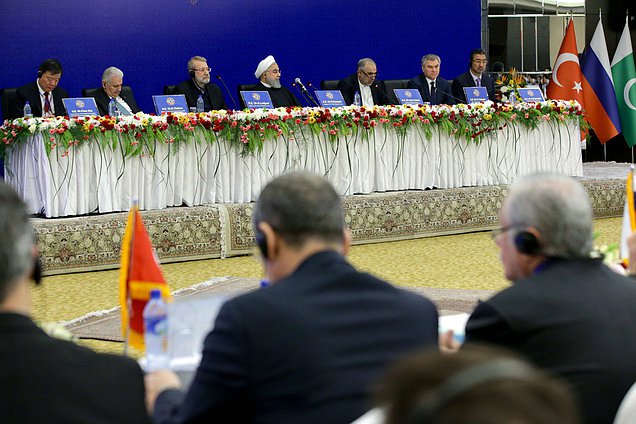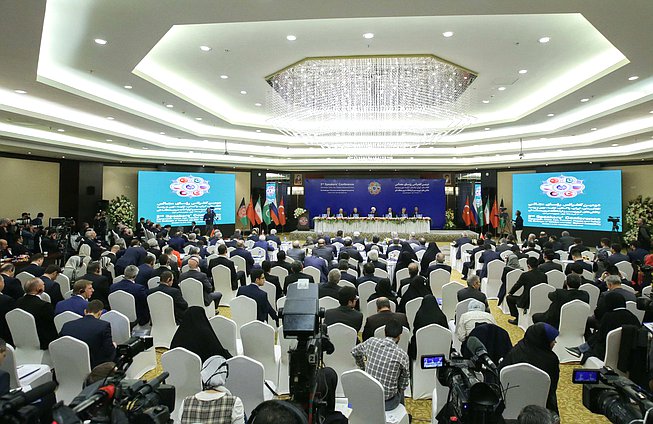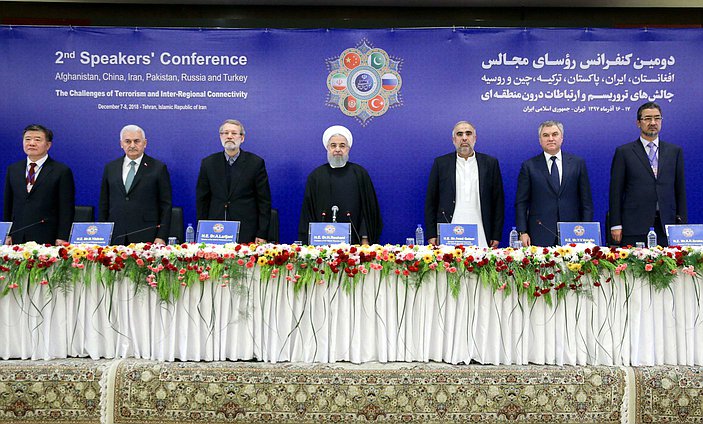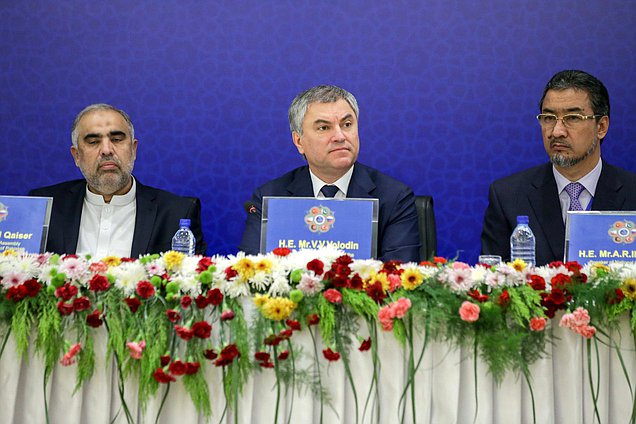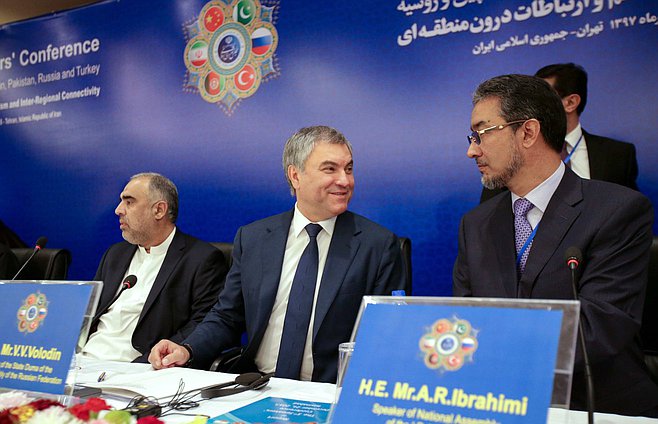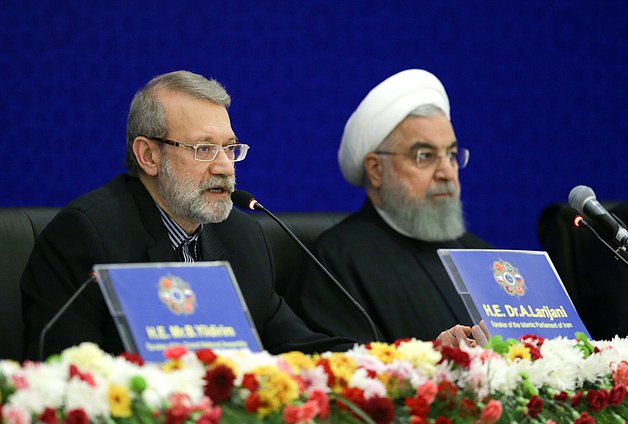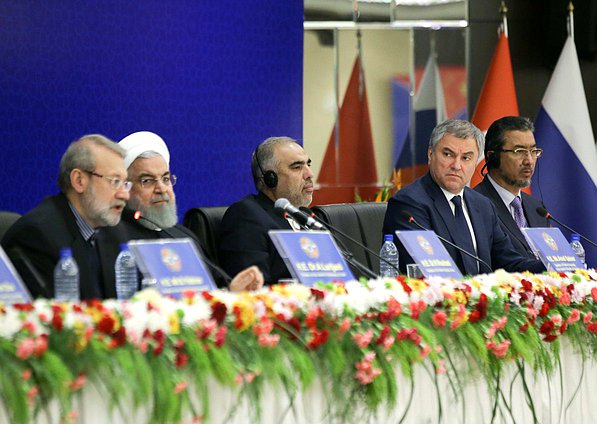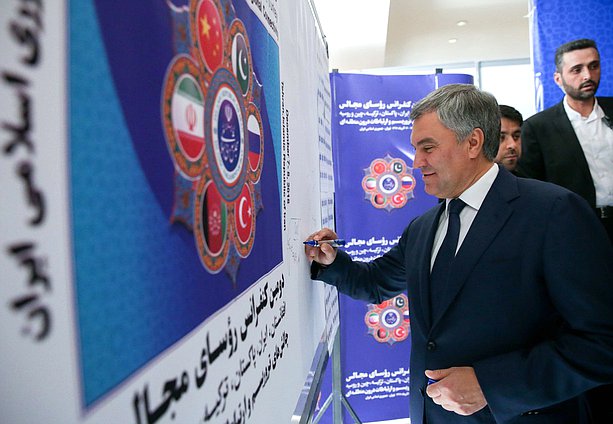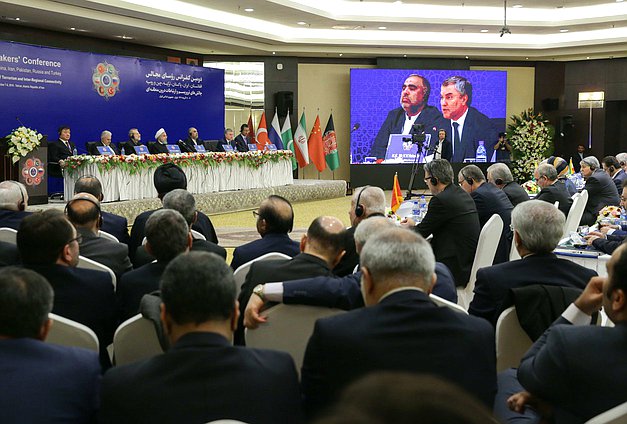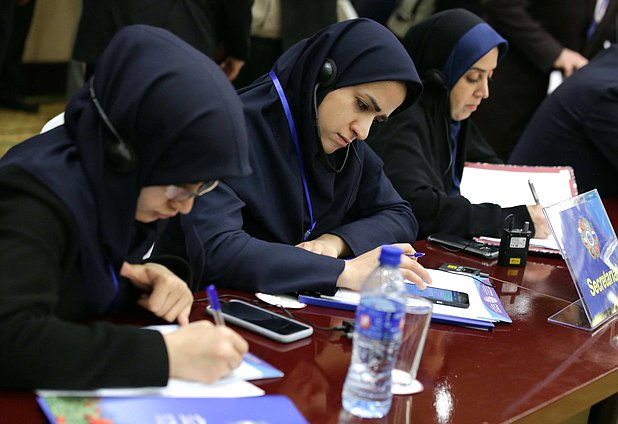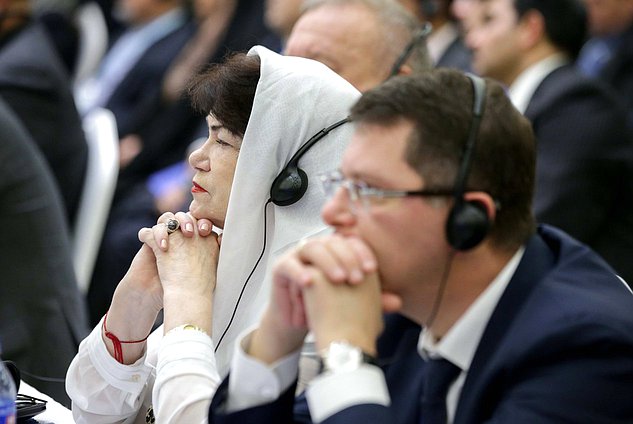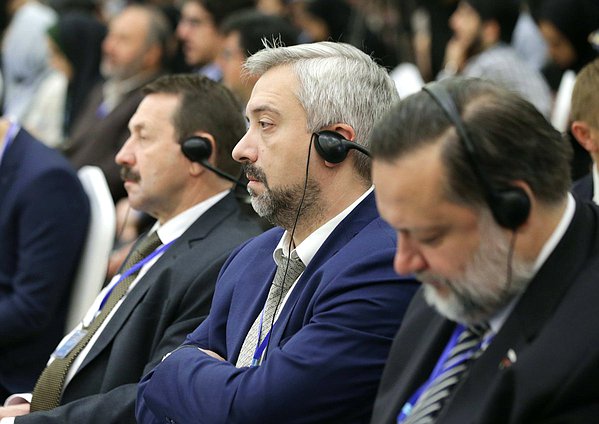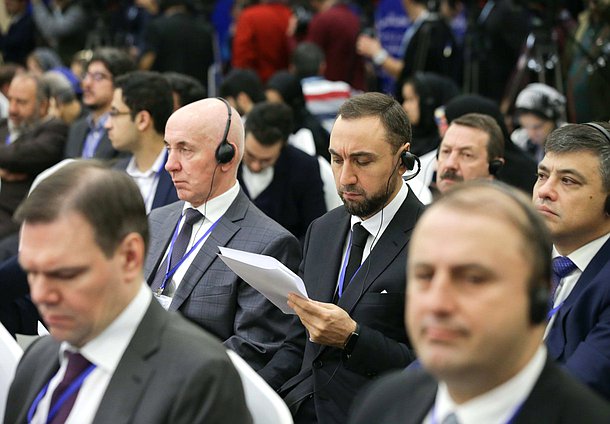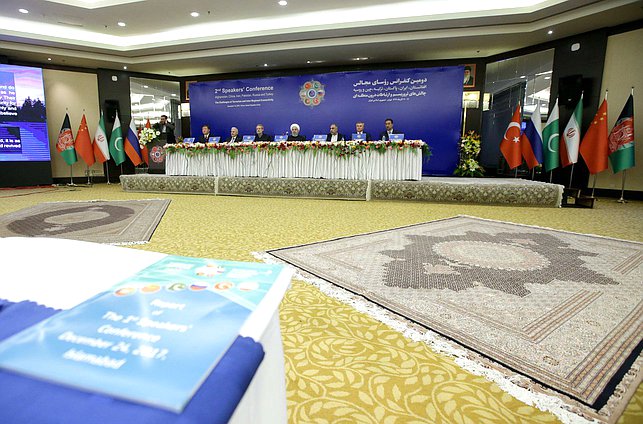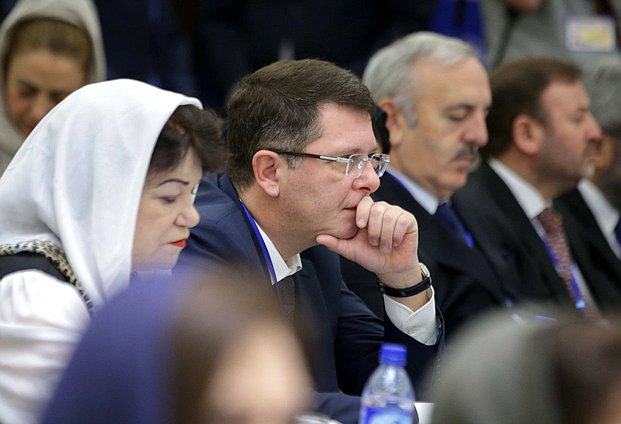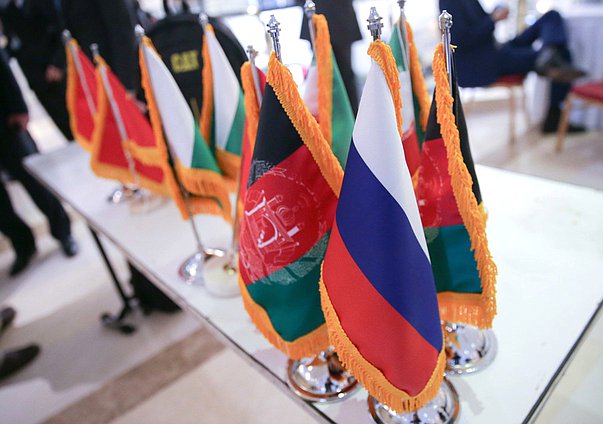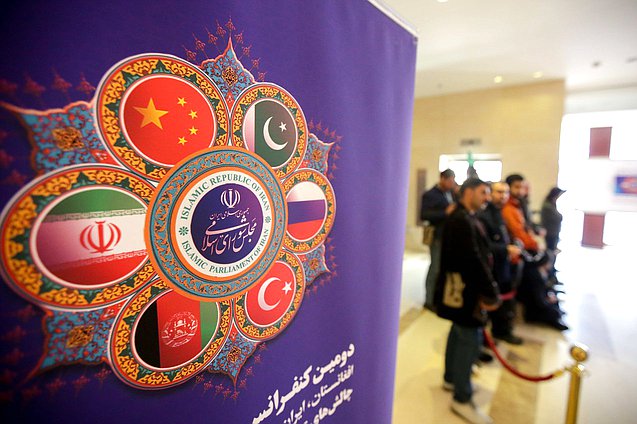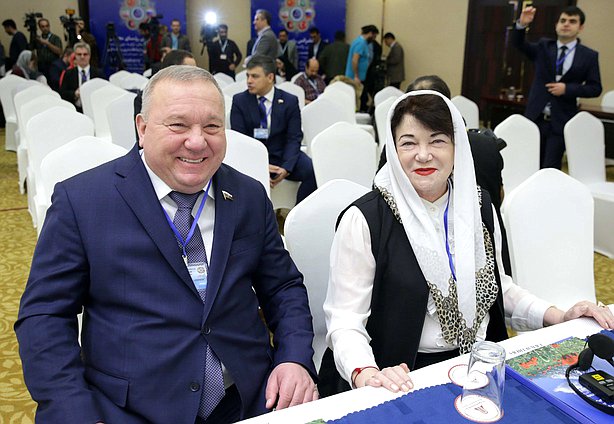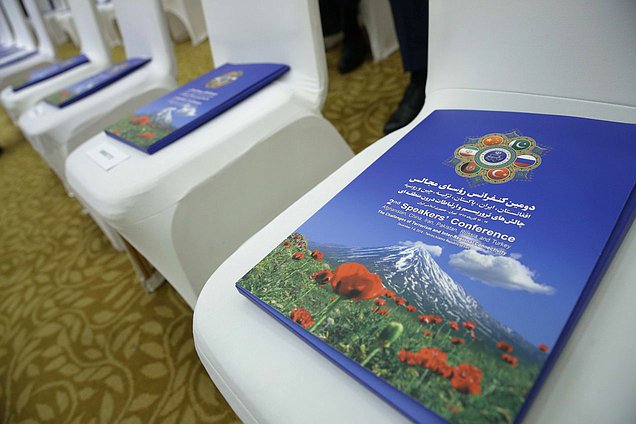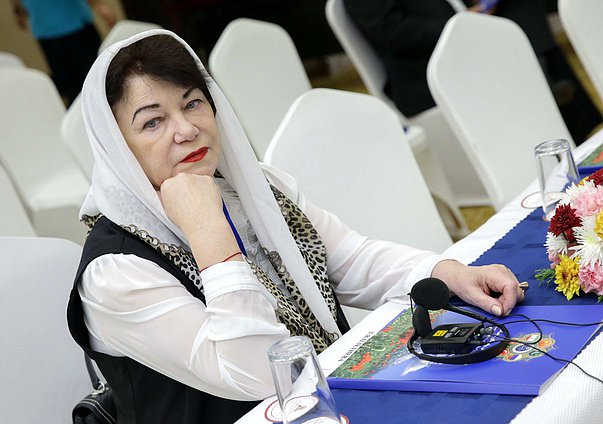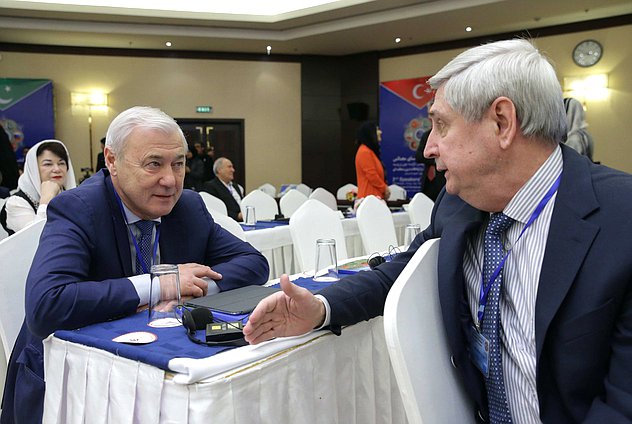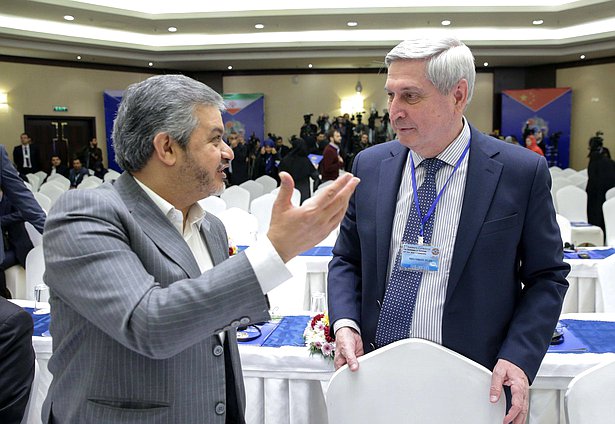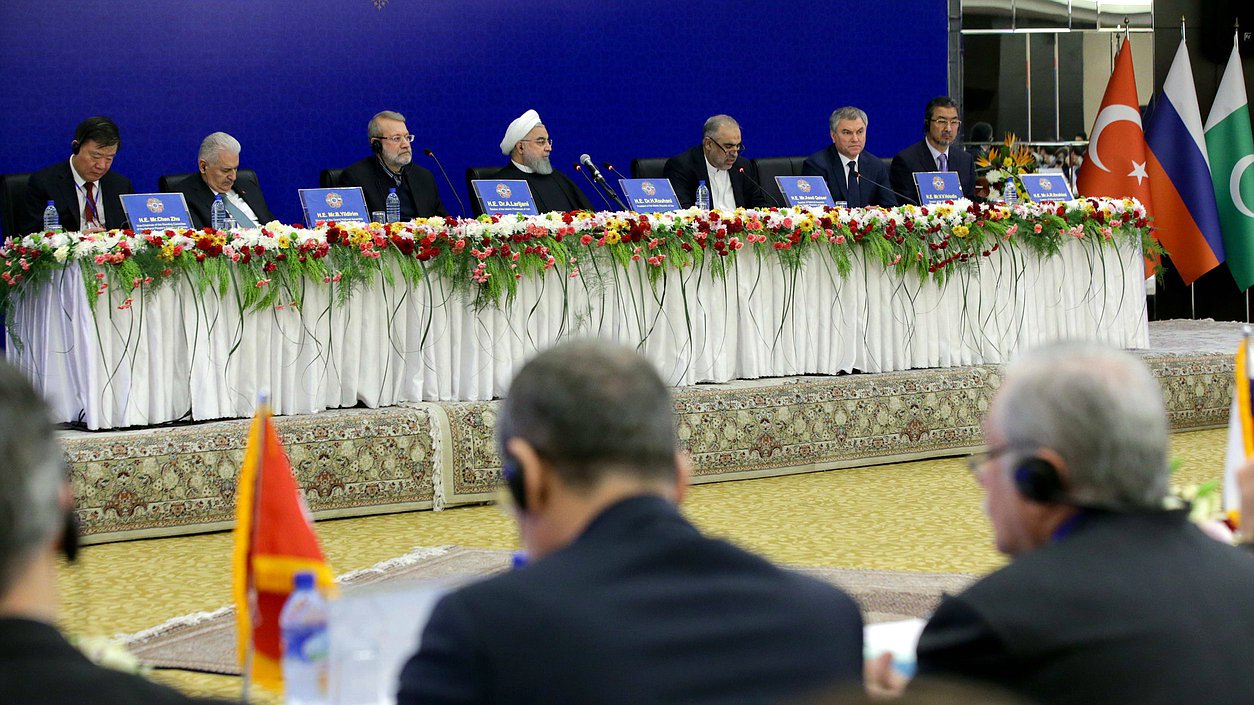
The full text of the speech of the Chairman of the State Duma Viacheslav Volodin

Vyacheslav Victorovich
The Chairman of the State Duma of the Federal Assembly of the Russian Federation of the eighth convocation. Elected in single mandate constituency № 163 (Saratov constituency - Saratov Oblast)
.
Dear Mr. President Rouhani!
Dear colleagues: Mr. Larijani, Mr. Yildirim, Mr. Ibrahimi, Qaiser, Chen Zhu!
Friends!
First of all, I would like to express my gratitude to the Chairman of Islamic Consultative Assembly of the Islamic Republic of Iran, Mr. Ali Larijani, to all Iranian colleagues for organizing the 2nd Conference on counter-terrorism and strengthening regional cooperation, thank you for your hospitality.
A year ago, we met for the first time in the framework of the new inter-parliamentary dialogue platform in Islamabad. The declaration we adopted last year reaffirmed the commitment of our countries to an open system of global security based on international law, principles of mutual respect, and peaceful settlement of disputes for sustainable development.
Based on this approach, we are working together on counter-terrorism, including through the parliamentary dimension.
I would like to note the importance of our meeting today. Russian President Vladimir V. Putin has stated many times that it is possible to effectively counter terrorism only together, and called on the international community to consolidate efforts, in particular, in Syria. So far, this has not been fully achieved.
The geopolitical ambitions of the United States of America, continuing to use terrorists and extremists as an instrument of pressure and direct interference in the affairs of sovereign states, hinder coordinated work. They are trying to bring this rationale in the form of the so-called concept of ”countering violent extremism“. This concept imposes on states the idea of introduction of ”anti-extremist standards“ for the education of civil society by so-called ”independent international experts“, avoiding the legitimate authorities.
As a result of such actions, state institutions are undermined, extremist tendencies and calls for ”color revolutions“ are fomenting in society. Terrorism is increasing, causing damage to countries and entire regions. Illustrative examples of this are the Middle East and North Africa. Over the four years, from 2011 to 2015, international terrorism in Syria has grown to a “terrorist pseudo-state”.
The liberation of most of the Syrian territory from terrorists was made possible only by agreements between the leaders of Russia, Iran and Turkey. Today, finally, we can talk about the return of the Syrian people to their homes. To do this, it is necessary to restore normal living conditions on the Syrian land: water supply, electricity, communications.
The catastrophic situation of the civilian Syrian population in the territories controlled by the Western coalition is of the greatest concern.
Delaying in resolving the humanitarian situation in Syria could lead to an increase of the terrorist threat in the region and, as a consequence, a new flow of refugees.
Dear Colleagues!
Provocations of terrorists, ongoing terrorist acts in Syria, Afghanistan, Pakistan and other countries confirm the conclusion that it is too early to talk about a complete defeat of international terrorism.
Terrorists are intensifying advocacy and recruiting activities, including on the Internet. After the defeat of the main forces of the so-called Islamic State in Syria, the militants are massively moving to Afghanistan, the countries of South and Southeast Asia, Africa and Europe.
We need to have a common understanding of what terrorism is and to have a single list of terrorist organizations. We must avoid a double interpretation of their actions. We should do everything possible to deprive terrorism of financial support, often coming from drug trafficking and transnational crime.
It is extremely important for the international community to establish cooperation in combating the spread of terrorists and extremist ideology. The lack of unity on this issue plays into the hands of those who seek to radicalization of public sentiment.
We discussed these issues in detail at the last meeting and set ourselves the relevant goals in the Islamabad Declaration. And this work has been carrying out in 2018 within the framework of the UN and other multilateral formats, where our countries participate.
I would like to draw your attention to the most important results of the formation of the international legal antiterrorist framework. I think it should be noted because there are important progress and achievements in this area.
Firstly, the UN Security Council Resolution 2354 adopted in May 2018 should make a serious contribution to the fight against terrorist ideology. It establishes a comprehensive international framework with a set of recommendations to counter the propaganda of ISIL (Daish), Al-Qaeda and related terrorist groups. Thus, for the first time, a comprehensive list of principles and effective international practices for the prevention of terrorism has been consolidated.
Secondly, Russia supported the “Code of Conduct towards Achieving a World Free of Terrorism”, which was proposed by Kazakhstan and signed by seventy UN member states in New York on September 2, 2018.
The Code brings together the principles of combating terrorism and the antiterrorist priorities of the international community:
- confirmation of the leading role of states in the fight against terrorism;
- the need for effective interstate cooperation in ensuring the prosecution of terrorists on the basis of the principle aut dedere aut judicare (“either extradite or prosecute”);
- the inadmissibility of supporting terrorist groups to achieve political and geopolitical goals, as well as any attempts to justify or glorify terrorism;
- adherence to the cooperation in the sphere of prevention of terrorism, including by suppression of the spread of terrorist ideology and propaganda.
Thirdly, a large work on the convergence of legislation in the sphere of the fight against terrorism and extremism is being carried out within the framework of the Parliamentary Assembly of the Collective Security Treaty Organization. First of all, it is about countering the ideas of terrorism and extremism in the digital space, forming a single list of organizations recognized as terrorist. The corresponding model laws and recommendations were adopted at the plenary session of the CSTO Parliamentary Assembly in October 2018.
We believe that the CSTO experience in addressing legislative gaps, when an organization recognized as terrorist in one country could legally exist in another, can also be useful for our meeting format.
Fourthly, in June 2018, at a meeting of the Council of Heads of State of the Shanghai Cooperation Organization, a number of important decisions in the security sphere were adopted. The SCO Program on Combating Terrorism, Separatism and Extremism for 2019–2021, the Joint Appeal of Leaders to Youth and the Action Program on implementation of its provisions aimed at preventing the involvement of the younger generation in destructive activities were among them.
Dear Colleagues,
All measures that we take should lead to building an open dialogue of the international community on countering terrorism without interfering in the internal affairs of sovereign states, without double standards and attempts to justify the actions of terrorists.
The tasks of ensuring security within Eurasia are closely associated with the sustainable development of our countries and the interaction of the regions of our countries.
Speaking about interregional contacts let me remind you that the Shanghai Cooperation Organization, where all our states participate in different statuses, gives special attention to them.
At the legislative level, we need to ensure the implementation of decisions taken by the presidents of our countries. In this regard, it is important to establish an effective inter-parliamentary dialogue within the SCO format.
I would like to inform you that the first meeting of the speakers of the parliaments of the SCO member states in the current composition is planned to be held during the Russian presidency at this Organization in 2019–2020.
Dialogue aimed at establishing mutually beneficial relations between the countries of Asia and beyond its borders is a way to build trust between our nations.
Today, we are witnessing an increasing number of violations of the generally recognized norms of international law, attempts of a number of countries to solve internal problems at the expense of others. We need to jointly counteract the policy of protectionism, the construction of trade barriers, sanctions and restrictions implemented by the United States of America.
Our trade and economic cooperation will definitely benefit if legal conditions are also provided for interbank transactions, mutual settlements in national currencies, investment protection, and optimization of the procedure for the movement of goods across the border.
This problem can be effectively solved by developing integration projects. For example, on the basis of the Eurasian Economic Union, the creation of the Greater Eurasian Partnership with the participation of the EEU and the Shanghai Cooperation Organization.
Dear colleagues,
In conclusion, I would like to stress that only together we will be able to overcome current challenges, find effective solutions to regional security and cooperation issues, combat the terrorist threat and drug trafficking. And the parliamentary dimension of this work plays an important role in the sustainable development of our countries and interaction in all areas.
Thank you for attention.“
